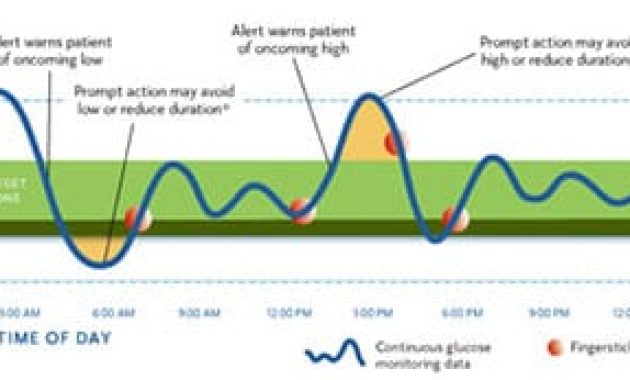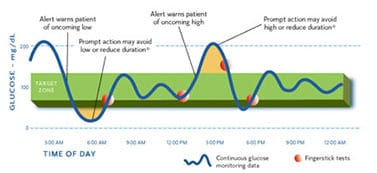
Diabet Sleep Hacks That Improve Glucose Levels: Unlocking Better Blood Sugar Control
The relationship between sleep and diabetes is complex, yet undeniably crucial. For individuals managing diabetes, a good night’s sleep isn’t just a luxury; it’s a cornerstone of effective blood sugar control. This article delves into diabet sleep hacks that improve glucose levels, offering practical strategies backed by scientific research and actionable advice. We’ll explore the intricate link between sleep quality and diabetes, the physiological mechanisms at play, and provide a roadmap for implementing lifestyle changes that can significantly impact your health.
Understanding how diabet sleep hacks that improve glucose levels can revolutionize your diabetes management is the first step towards achieving better health. Poor sleep can wreak havoc on your blood sugar. This can lead to increased insulin resistance. This makes it harder for your body to process glucose effectively. Conversely, prioritizing sleep can improve insulin sensitivity. This can lead to lower blood sugar levels and a reduced risk of complications. Let’s examine how.
The Diabetes-Sleep Connection: A Deep Dive
The human body operates on a delicate balance. Hormones and biological processes are tightly regulated. Sleep, or lack thereof, can significantly disrupt this balance. Several key hormones involved in glucose metabolism are directly impacted by sleep. These include insulin, cortisol, and growth hormone.
When you don’t get enough sleep, your body releases more cortisol. Cortisol is a stress hormone that can increase blood sugar levels. Sleep deprivation also decreases insulin sensitivity. This means your cells become less responsive to insulin. This makes it more difficult for glucose to enter cells. This results in elevated blood sugar.
Furthermore, poor sleep can lead to increased appetite and cravings. This often leads to overeating, especially of unhealthy foods. This further exacerbates blood sugar imbalances. Conversely, adequate sleep promotes the release of growth hormone. This hormone helps to repair and rebuild tissues. It also improves glucose metabolism.
The Science Behind Diabet Sleep Hacks That Improve Glucose Levels
Numerous studies have demonstrated the link between sleep and diabetes. Research consistently shows that individuals with sleep disorders are at a higher risk of developing type 2 diabetes. This includes conditions like sleep apnea and insomnia. Studies have also shown that improving sleep quality can lead to significant improvements in blood sugar control.
For example, a study published in the journal Diabetes Care found that even a single night of sleep deprivation can significantly impair insulin sensitivity. Another study in the journal Sleep showed that interventions to improve sleep quality, such as cognitive behavioral therapy for insomnia (CBT-I), can lead to improved glucose control and reduced A1c levels in people with type 2 diabetes.
The physiological mechanisms that explain this relationship are complex. However, they primarily revolve around hormonal regulation, insulin sensitivity, and metabolic processes. Understanding these mechanisms provides a foundation for implementing effective diabet sleep hacks that improve glucose levels.
Essential Diabet Sleep Hacks That Improve Glucose Levels
Implementing diabet sleep hacks that improve glucose levels requires a multifaceted approach. This involves changes to your sleep hygiene, lifestyle, and potentially medical interventions. Here are some effective strategies:
- Establish a Consistent Sleep Schedule: Go to bed and wake up at the same time every day, even on weekends. This helps regulate your body’s natural sleep-wake cycle (circadian rhythm). This improves sleep quality.
- Create a Relaxing Bedtime Routine: Wind down before bed with calming activities. Examples include taking a warm bath, reading a book, or listening to soothing music. Avoid screen time (phones, tablets, computers) for at least an hour before bed. The blue light emitted from these devices can interfere with sleep.
- Optimize Your Sleep Environment: Make sure your bedroom is dark, quiet, and cool. Use blackout curtains, earplugs, or a white noise machine if needed.
- Limit Caffeine and Alcohol: Avoid caffeine and alcohol, especially in the hours leading up to bedtime. These substances can disrupt sleep patterns.
- Regular Exercise: Engage in regular physical activity. Exercise improves sleep quality. However, avoid strenuous exercise close to bedtime.
- Manage Stress: Practice stress-reducing techniques, such as meditation, deep breathing exercises, or yoga. Chronic stress can negatively impact sleep.
- Dietary Considerations: Maintain a balanced diet. Avoid large meals and sugary snacks before bed.
- Consider Cognitive Behavioral Therapy for Insomnia (CBT-I): CBT-I is a proven effective treatment for insomnia. It can significantly improve sleep quality.
- Treat Underlying Medical Conditions: Address any underlying medical conditions that may be contributing to sleep problems. This includes conditions like sleep apnea, restless legs syndrome, and depression.
- Consult with a Healthcare Professional: If you are struggling with sleep problems, consult with your doctor. They can evaluate your sleep patterns. They can also recommend appropriate interventions.
Diabet Sleep Hacks That Improve Glucose Levels: Addressing Specific Sleep Disorders
Certain sleep disorders are particularly prevalent among individuals with diabetes. These include:
- Sleep Apnea: This condition causes you to repeatedly stop and start breathing during sleep. It is associated with increased insulin resistance and poor blood sugar control. If you suspect you have sleep apnea, seek medical evaluation. Treatment options include CPAP (continuous positive airway pressure) therapy.
- Insomnia: This involves difficulty falling asleep, staying asleep, or both. Insomnia can significantly worsen blood sugar control. CBT-I is an effective treatment for insomnia.
- Restless Legs Syndrome (RLS): This condition causes an irresistible urge to move your legs. It can disrupt sleep and negatively impact glucose control. Treatment may include medication and lifestyle modifications.
Addressing these specific sleep disorders is crucial for improving diabet sleep hacks that improve glucose levels.
The Power of Consistency and Patience
Implementing diabet sleep hacks that improve glucose levels is not an overnight fix. It requires consistency and patience. It may take several weeks or months to see significant improvements in your sleep quality and blood sugar control. Don’t get discouraged if you don’t see immediate results. Keep practicing these strategies. Track your progress. Consult with your healthcare team. They can make adjustments as needed.
Tracking your blood sugar levels, sleep patterns, and overall health can help you identify patterns. This can also help you determine which strategies are most effective for you. Consider using a sleep tracker or a blood glucose monitor to monitor your progress.
Beyond Blood Sugar: The Broader Benefits of Sleep
Improving your sleep quality offers benefits that extend beyond blood sugar control. Adequate sleep is essential for overall health and well-being. It can improve your mood, energy levels, cognitive function, and immune system function. Prioritizing sleep is an investment in your long-term health.
Conclusion: Embracing Diabet Sleep Hacks That Improve Glucose Levels for a Healthier Future
The connection between sleep and diabetes is undeniable. Implementing diabet sleep hacks that improve glucose levels can significantly improve your blood sugar control. It can also reduce your risk of diabetes-related complications. By prioritizing sleep, you’re empowering yourself to live a healthier and more fulfilling life. Start incorporating these strategies today. Consult with your healthcare team. Take control of your health. Embrace the power of sleep.
[See also: Related Article Titles]

